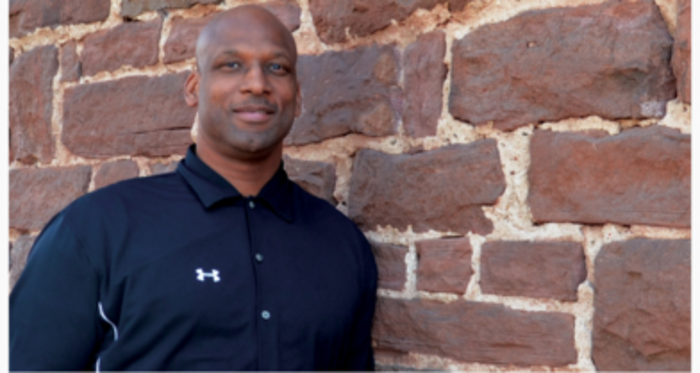By Alton Carter, author of The Boy Who Carried Bricks and Aging Out.
During the past year, I have had hundreds of people ask me the same question, “What can I do to make a difference?” My answer has been and always will be, “Just do something, anything, but don’t be a bystander.”
I was not lucky enough to have two loving parents, a nice home and food on the table at every meal. In fact, I endured horrible abuse and went to bed hungry more nights than not. I was not lucky enough to sit in the living room and play board games like many families. Instead, my siblings and I would sit on the floor and take turns telling what we would do if we had money. We didn’t wish for fancy cars or dream vacations. We wished for things that many people take for granted. We wished to be loved and for a house that was not full of bugs.
Full of anger, I spent more time in the principal’s office than the classroom. By the time I was in the fourth grade I hated my circumstances, and I hated myself even more. As much as my brain is full of bad memories, it is also full of moments where ordinary people did something in order to help me feel loved. The school cook always had breakfast waiting for me and my siblings no matter how late we arrived at school. Not only did I get to eat a much needed meal, I had my own special seat on her lap while I ate my breakfast.
Mrs. Thompson was also someone who dared to do something. She took me in after I had worn out my welcome in another class and was sent into the hallway with instructions from the teacher to never return. Mrs. Thompson was in the hallway and heard what happened. She rushed to my side and told the other teacher, “I will take him.” She took me by my hand and led me into the classroom, seating me in the front of her class, next to her desk. I will never forget looking up at Mrs. Thompson and wondering why anybody would ever want me. A few months later, I would be separated from my family and placed into a detention center with nothing more than the clothes on my back and the memory of a teacher who made me feel worthy.
There is no doubt my childhood seemed unfair, and truth be told it probably was. I became the person I am today though because throughout all the heartache, many people planted seeds of hope in me that allowed me to save myself. We have to accept that sometimes we may never get to see the seeds we plant, grow. It is also important to note that if we don’t even plant those seeds, hope will never take root.
Along the way, I received basketball shoes from coaches, words of encouragement from friends, and food and shelter from foster parents. It would be silly for me to say the roof over my head had a bigger impact than the words of encouragement because my heart needed to love just as much as I needed a safe place to sleep or shoes to wear.
People who could afford to help me financially did what they could to help me with specific needs. People who saw my broken heart, loved me in spite of how I hated myself. People who heard me talk bad about myself, whispered words of inspiration causing me to believe that I too was worth something.
When I was a child, all I ever wanted was to be loved and made to feel special from time to time. I wanted to fit in and be a part of something bigger than myself. Because a few ordinary people did something, I can look back now and see I was special to them. Those seeds took a long time to grow, but today they have blossomed and I feel better about myself than I ever imagined I would. I am the person I am today, not because of one expensive gift, but because the few giant gifts were accompanied by lots of small gestures that may have seemed insignificant at the time.
Edward Everett Hale says, “I am only one, but I am one. I cannot do everything, but I can do something. I will not let what I cannot do interfere with what I can do.” If you are asking yourself what you can do to help make the world a better place, just do something.
——————
ALTON CARTER is a former foster child and police officer. He was the first person in his family to graduate from high school and college.
Now the director of youth ministries for the First United Methodist Church of Stillwater, Oklahoma, the Oklahoma State University alum has dedicated his life to working with young people.
In April of 2015, his debut book, THE BOY WHO CARRIED BRICKS, was published by The RoadRunner Press. On April 9, 2016, the nonfiction title won the 2016 Oklahoma Book Award.
The book is a true recount of Carter’s hard-scrabble life growing up on the plains and in the small towns of Oklahoma.
In 2015, Carter founded the Alton Carter Inspire Foundation with the goal of assisting young people who have lived in foster care, group homes, or DHS juvenile facilities in securing a college degree. A percentage of the sales from THE BOY WHO CARRIED BRICKS goes to this cause.
Carter makes his home in central Oklahoma, with his wife, Kristin, and their two sons, Kelton and Colin.

